Alokananda Chakraborty, Rajarshi Bhattacharjee
The battle lines are being redrawn in the 213-million-unit mobile device market in India. If handset king Nokia is looking to 'Connect the Next Billion' with differentiated products and unmatched experience, close No 2 Samsung is banking on range and smart apps to catapult it to the top of the heap.
As the two intensify their efforts to strengthen their respective positions in India, there is frenetic behind-the-scenes activity to put together an eco-system that will give them an edge over the others in the fray.
While the Indian mobile market is driven by the lowest call rates in the world and a plethora of low-cost devices that account for 75 per cent of the overall sales, the segment where the game plans of the Top 2 will play out is the aspirational smart phones where the Korean company has already cemented its position as the top dog in the fag end of 2011.
Battleground: Who will win Samsung or Nokia?
Image: ReuterMind you, India, accounting for approximately 12 per cent of worldwide sales, is an important market for device manufacturers, with aspirations to grow their global market share.
And smart phones are crucial because India is at a juncture where this segment will see exponential growth, driven largely by the need of the consumer to access data on the mobile phone.
"Smart phones are witnessing an increased adoption in the India market, not only amongst business executives but also among the youth as such devices offer superior usability, entertainment and functional capabilities," says Naveen Mishra, lead analyst, CyberMedia Research Telecoms Practice.
...
Title:Battleground: Who will win Samsung or Nokia?
Photographs: Gary Hershorn/Reuters
Just look at these figures for proof: In the fourth quarter of 2010 smart phones contributed 6 per cent to overall mobile industry.
In the fourth quarter of 2011, the figure had touched double digits to stand at 10 per cent. From 8 million last year, the number of units is expected to touch 18-20 million before we close the year.
Given this, the urgency with which both Samsung and Nokia are pushing models in the segment is understandable.
Both the leader in the smart phone category, Samsung, and overall market leader, Nokia, have set their eyes on being scale players.
...
Battleground: Who will win Samsung or Nokia?
Photographs: Reuters
To this end, Nokia has moved to Windows as the primary platform for its smart phones, while continuing to invest in the Symbian operating system (OS).
Samsung's master plan includes following a multi-platform strategy in smart phones as the company launches phones across Android, Windows phone and its own Bada operating system.
It says it is in a market creation mode as it beefs up in-store and out-of-store demonstrations (customer interaction) across the country.
The question however is, can late comer Samsung topple market leader Nokia to gain an overall lead in the mobile handset market? Or shall we see the world-leading mobile phone maker which has the first mover advantage having set foot in the country in 1995, make a comeback in smart phones? Their new offerings might offer some clues.
...
Battleground: Who will win Samsung or Nokia?
Image: Nokia Lumia 800Product first
Even though the Lumia is few months old (Nokia Lumia 800 and Nokia Lumia 710, based on the new Microsoft Windows 7.5 Mango OS, were launched in November 2011), Nokia are optimistic about the momentum the new range will generate.
The company says that one indication of the growing interest of the people in the brand is that two out of every three consumers walking into a Nokia store want to know about Lumia.
Viral Oza, director, marketing, Nokia India, says, "A smart phone is not what an industry might define a device by; it is more about the kind of experience the consumers get which actually defines whether a phone is smart or not. Nokia, in a way, has always stayed true to the promise of taking the benefits of technology to the masses. And that's what we will continue to do with the Lumia and the Asha series of devices."
...
Battleground: Who will win Samsung or Nokia?
As far as smart phones are concerned, "Samsung will not choose for the customer; instead it will offer the customers a choice," says Ranjit Yadav, country head, mobile & IT business at Samsung India.
So range will be key — in effect it has phones starting at Rs 7,000 and going all the way up to Rs 35,000 for its products across the three platforms.
Speaking about the brand's journey from being a late entrant in India to a leader in smart phones, Yadav says, "End of 2010-early 2011 was the inflection point for us, when a lot of things fell in place. We said to ourselves that we have to offer the right solutions to our consumers and we started working at it in a comprehensive way. Remember we are not here for a niche play or for a small set of the consumers. We want to offer certain features and applications for everybody who has a Samsung phone and then offer them a choice to move up to a smartphone."
...
Battleground: Who will win Samsung or Nokia?
So it is solutions which is the key -- be it in smart phones or feature phones. But since smart phones are still new as a concept a big task Samsung has taken upon itself is consumer education.
"Even though most customers conceptually know what an Android phone is, often they don't know how to use the same, what's the value proposition behind it, how do actually make it do tasks, availing enough applications, accessing content and so on, so that people can really use it. It should not be a just a feature phone-plus, instead it should be really offer a smart phone experience," adds Yadav.
...
Battleground: Who will win Samsung or Nokia?
Photographs: Luke MacGregor/Reuters
To this end, Samsung has set up a retail footprint across the country that not only allows it to address its customers but also helps it learn about consumer experience through a range of activities -- demonstrations and customer interactions, in-store and out-of-store.
"The idea being, once customers are offered the full knowledge of and shown the advantaged of using a Samsung product, it will create a viral of its own," points out Yadav.
On his part, Nokia's Oza says the pillars of its India strategy has been reach and after sales service.
...
Battleground: Who will win Samsung or Nokia?
Photographs: Reuters
"Apart from reach, access to post-sales service has been the key to Nokia for many years. The retail end was refurbished with the launch of Nokia Lumia series -- we undertook a huge internal training exercise covering 12,500 people because it is on a new platform and consumers needed to be explained and offered a certain experience.
The idea was creating advocacy with everybody associated with Nokia. A lot of live devices were placed in our outlets and a unique shopping ambience was created for the consumers," he says.
Both Samsung and Nokia strongly believe that while they are in a market creation mode, the onus analysts lay on price is often exaggerated.
...
Battleground: Who will win Samsung or Nokia?
Photographs: Reuters
"The customer must get a superior experience and should be offered an eco-system that will help them make full use of the device in their hand," says Samsung's Yadav.
"With time the price will come down in any case. If customers are dissatisfied with the outcome, irrespective of the price, all efforts will fail.
This is a choice manufacturers have to make -- offer value pricing or cheap products."
...
Battleground: Who will win Samsung or Nokia?
The two have also eying the dual-SIM segment with keen interest. Dual-SIM and multi-SIM handsets were 55.8 per cent of total mobile handset shipments in the country in the July-August-September 2011 quarter, according to a report from CyberMedia Research.
"Nokia, a late entrant to the multi-SIM device category, made up by having as many as five models on offer by September 2011," the report said.
Last month, Samsung launched three dual-SIM smart phones in India -- the Galaxy Ace Duos (SCH-i589), the Galaxy Y Pro Duos (GT B5512) and the Galaxy Y Duos (GT-S6102).
The company also strengthened its feature phone dual SIM portfolio with the launch of the Samsung Champ Deluxe Duos (C3312) and the Star 3 Duos (GT-S5222).
...
Battleground: Who will win Samsung or Nokia?
Apps effect
What will be key in determining the way forward is applications or apps, as they are referred to in the industry.
Application development received a boost post 2008 when developers took control and started delivering high quality content and directly deal with consumers without going through telecom operators.
The 18-to-25 generation quickly took to this idea of downloading apps.
...
Battleground: Who will win Samsung or Nokia?
Photographs: Reuters
"The key to application development is catering to consumer demand. What is important for smart phone players today is creating content understanding the demographics and overall psychological pattern of the people," shares Virat Khutal, CEO, Twist Mobile, an Indore-based company that has seen more than 25 million apps downloads on the Nokia Store globally.
Both Samsung and Nokia have really kept their noses to the grindstone to offer applications and customisation, knowing the strategic difference it can make to their fortunes.
In the past few years, cricket, gaming, astrology and Bollywood movie-clip and music downloads have ruled the roost in terms of availability of online and mobile content in India.
...
Battleground: Who will win Samsung or Nokia?
"Going forward, it is important for the three-part ecosystem of device vendors, content companies and telecom service providers to invest in creating attractive and relevant content packages for the growing segment of 3G device and smart phone users.
The industry also needs to focus on improving the overall user experience by making lighter, faster applications.
These measures are expected help grow data consumption in the country and lead to improvement in telco ARPUs (average revenue per user)," sums up Mishra of CyberMedia Research.

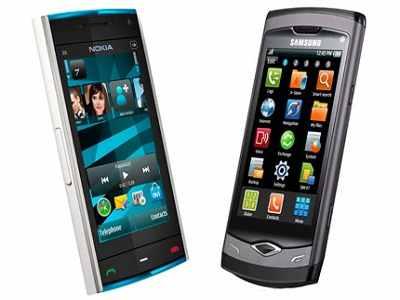
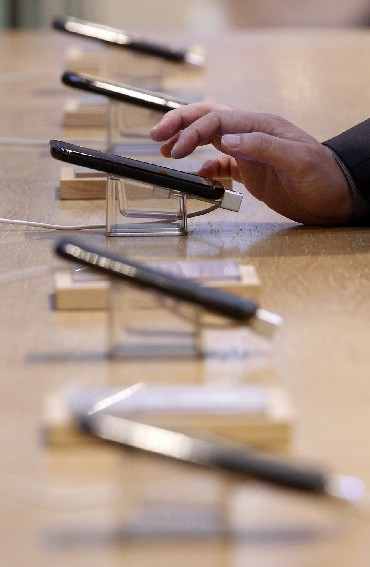

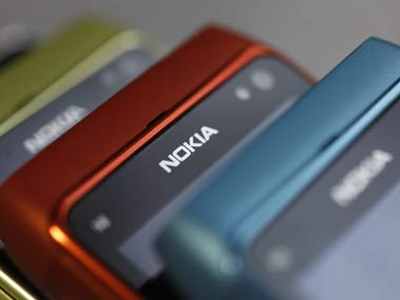
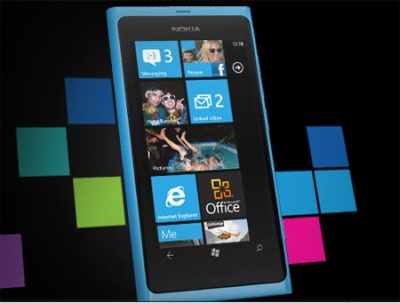



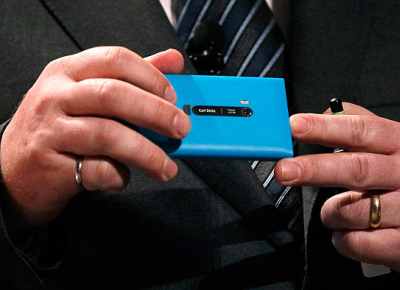

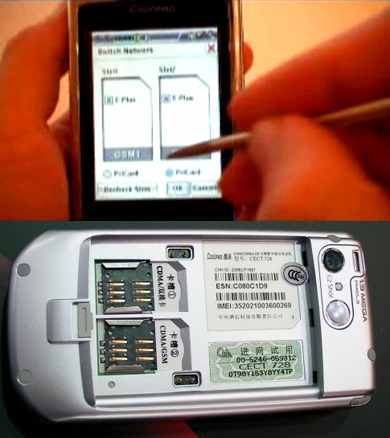




article